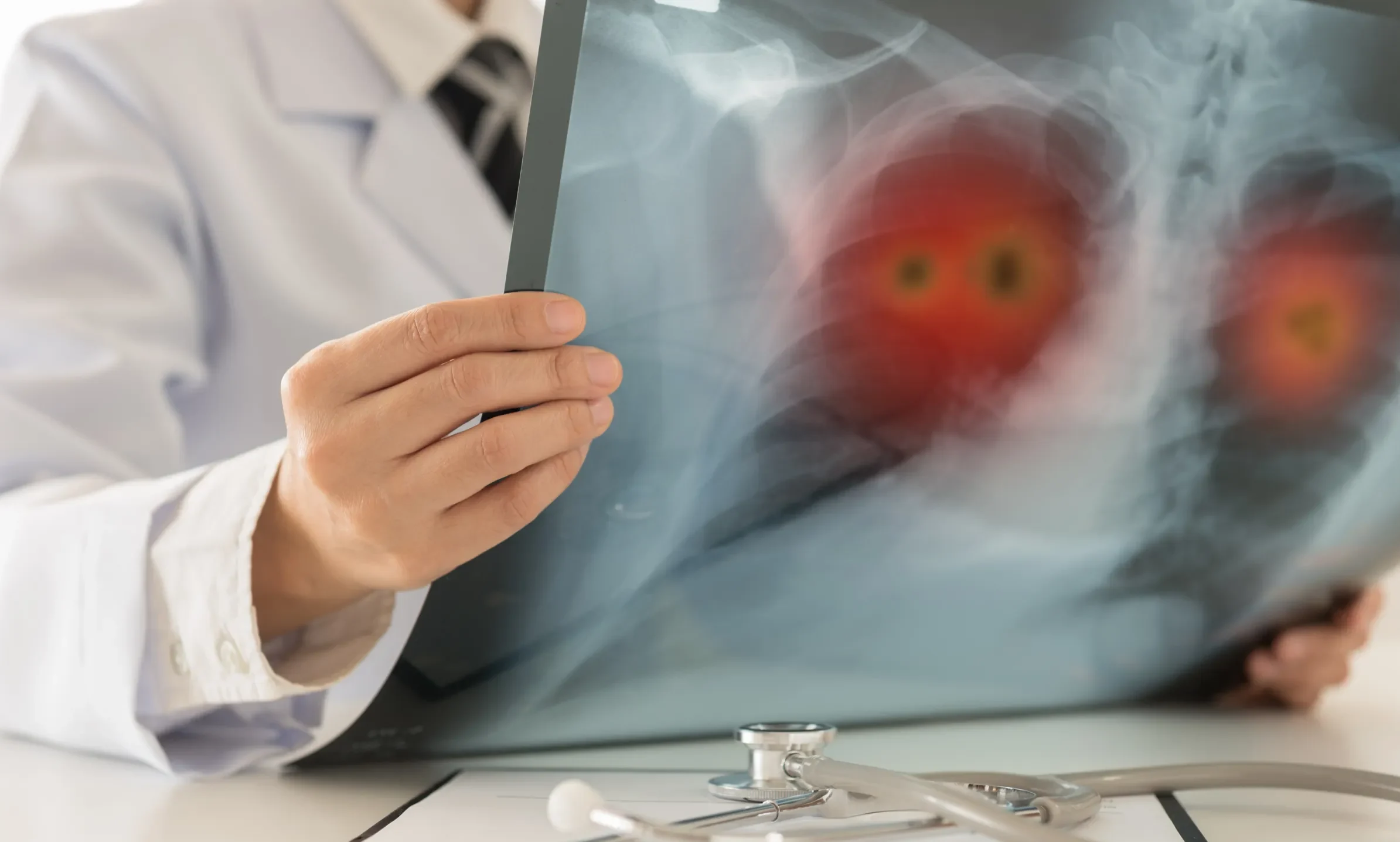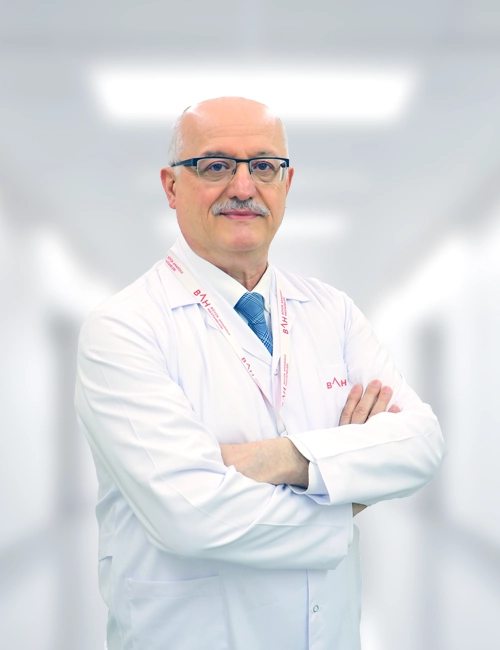-
 News
According to a WHO report, one in six people worldwide suffers from loneliness
News
According to a WHO report, one in six people worldwide suffers from loneliness
-
 News
Australia launches national lung cancer screening program: a new approach to cancer prevention among high-risk patients
News
Australia launches national lung cancer screening program: a new approach to cancer prevention among high-risk patients
-
 News
In stressful situations, people make riskier decisions
News
In stressful situations, people make riskier decisions
-
 News
Stem cell transplantation can completely cure people with severe diabetes
News
Stem cell transplantation can completely cure people with severe diabetes
-
 News
Updated COVID-19 vaccines have been shown to be effective against severe forms of the disease
News
Updated COVID-19 vaccines have been shown to be effective against severe forms of the disease
All news
Prostatitis treatment
Prostatitis is a very common disease in men. It is associated with pain during emptying of the bladder (urination) and ejaculation. Therapy and prognosis depend on the kind and reason of inflammation.
- 15% of men suffer from it at least once in their life.
- The likelihood of getting sick increases with age.
- 40 years is the average age of the affected.
Diagnostic methods: urethrography with contrast, determination of prostate-specific antigen, CT, a combination of urination analysis and ultrasound.
Innovative treatment: antibiotic therapy with new generation drugs, surgical removal, alternative non-drug therapies.
MedTour patients recommend clinics for the treatment of prostatic:
Doctors for the treatment of prostatitis
Frequently Asked Questions
This is a disease of the prostate gland. It is placed below the bladder, about the size of a chestnut. The prostate is made up of discrete glandular bodies and produces a slightly cloudy fluid.
Types of prostatitis:
- Acute bacterial – onset suddenly, causing high temperature and problem urination.
- Chronic bacterial – manifestations last 3 months and longer in the last six months,
- Special asymptomatic form.
Acute type: microbes enter the prostate through the bloodstream or are spread by a infection of the bladder or urethra. It is a serious condition with severe pain when urinating, fever, and chills.
Acute form leads to a chronic one: but it lasts more than three months and germs are re-detected in the urine. Chronic form also causes painful urinating and a feeling of pressure in lowest part of the abdomen. In this form the symptoms are not as obvious as in acute.
In most cases, these are intestinal bacteria, which cause this disease: Escherichia coli. These bacteria first enter the urinary tract and then spread to the organ. There they cause a protective reaction of the tissue – inflammation. Another way of infection is through blood (hematogenous spread).
Disease risk factors include:
- Taking a sample of the prostate,
- Narrowed urinary ways,
- Recently inserted medical devices (catheters),
- HIV.
Chronic bacterial prostatitis
Microbes are often the same as in the acute form. But atypical pathogens – chlamydia – can be implicated in chronic inflammation. They are often sexually transmitted and enter the prostate.
Risk factors for developing chronic inflammation include:
- A history of the disease with insufficiently long-term antibiotic use,
- Prostate stones.
Manifestations of the acute form:
- High temperature of body,
- Problems with urination: burning pain, decreased urine flow, increased frequency of going to the toilet,
- Pain in the lowest part of abdomen and pelvis, during or after ejaculation.
Manifestations of the chronic form:
- Feeling of pressure in the perineum or lower abdomen,
- Brown ejaculate due to blood in semen or blood in urine (hematuria),
- Decreased libido and erectile dysfunction, often caused by pain during or after ejaculation.
In addition to its acute symptoms, the disease can lead to complications. The most common complications are:
- An abscess (especially in the acute bacterial form) is a purulent structure with envelope.
- Spread to nearby structures: epididymis or testicles (epididymitis, orchitis).
- The chronic form increases the risk of developing cancer.
Overseas hospitals diagnose prostatitis with:
- Blood and urine analysis,
- Determination of prostate specific antigen,
- Urethrography with contrast agent,
- Ultrasound examination,
- CT,
- Combination of urination rate analysis with ultrasound.
Overseas hospitals use the following methods:
- Antibiotic therapy with modern drugs,
- Surgical removal,
- Alternative non-drug therapies.
Patients choose overseas hospitals for the following reasons:
- Clinics abroad always have high-quality equipment. It is reliable and meets international standards.
- Foreign doctors study at leading medical universities and undergo training.
- Treatment protocols are based on evidence-based medicine. This means that treatment methods are effective and safe.
Diagnostics of prostatitis abroad
Laboratory diagnostics
In foreign clinics, they pay particular attention to indicators of inflammation and prostate-specific antigen (PSA). It only increases with inflammation. If there is a fever, blood cultures are taken. The culture is used to check the blood for microbes.
Clinics abroad pay special attention to urine analysis. The cause of the prostate inflammation is determined with it. If bacteria are found in the sample material, a bacterial culture is created. These tests are important in determining the antibiotic – if bacterial etiology is confirmed.
Ultrasound
An ultrasound scan reveals the size of the prostate gland and is performed through the anus. If there is inflammation, there will be a noticeable change in tissue on ultrasound.
Combined research methods
With this disease, in half of the patients, the outflow of urine decreases. Therefore, in foreign clinics, a urologist measures the amount of urine excreted over time and the maximum flow of urine. Additionally, ultrasound is performed. Using an ultrasound of the abdominal wall, the doctor can see if there is still urine after the bladder is completely empty.
If a narrowing of the urethra is suspected, the urologist injects a contrast agent into the urethra. On subsequent x-rays (urethrography), the doctor sees the course and width of the urethra.
Treatment of acute prostatitis abroad
After the diagnosis is made, the patient is first prescribed antibiotics in the hospital. Overseas clinics use modern fluoroquinolones. They are administered first intravenously and then orally for 4 weeks. After determining the microbes using a special resistance test, the antibiotic is changed if necessary.
If the patient cannot empty the bladder, foreign doctors use:
- Alpha receptor blockers. Alpha-blockers relax the muscles of the prostate and bladder, making it easier to empty the bladder.
- A disposable catheter is placed in the urethra or urine is drained through a catheter that can be accessed through the abdominal wall.
Chronic prostatitis treatment abroad
The chronic bacterial form is treated with fluoroquinolones for 4 weeks. If the bacteria are resistant, doctors abroad recommend clotrimazole therapy for 3 months. If the disease recurs, long-term antibiotic therapy is used for 6 months.
Surgical removal is considered only if:
- All therapeutic attempts have been unsuccessful,
- There are anatomical changes (cysts or adhesions).
Alternative methods
For chronic cases, foreign clinics offer alternative sparing methods of treatment:
- Mud baths,
- Physiotherapy,
- Herbal medicine,
- Diet programs,
- Acupuncture,
- Sessions of psychotherapy.
Published:
Updated:









